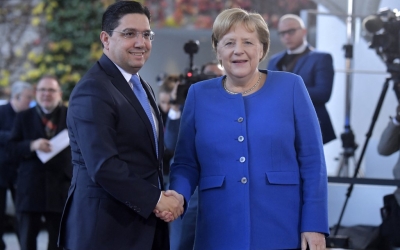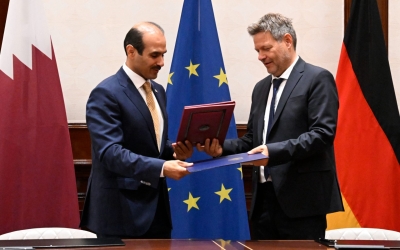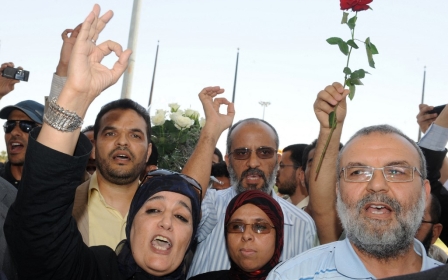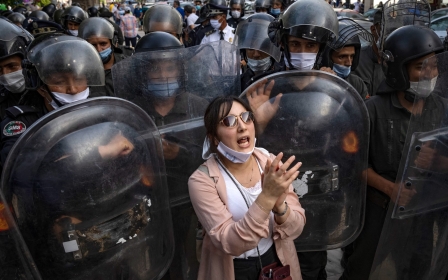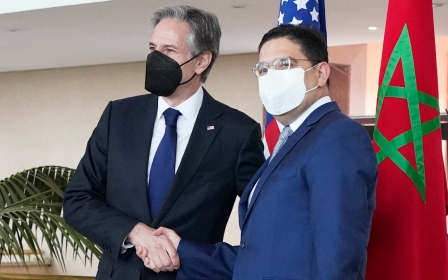Morocco-Germany relations: What next after reconciliation?
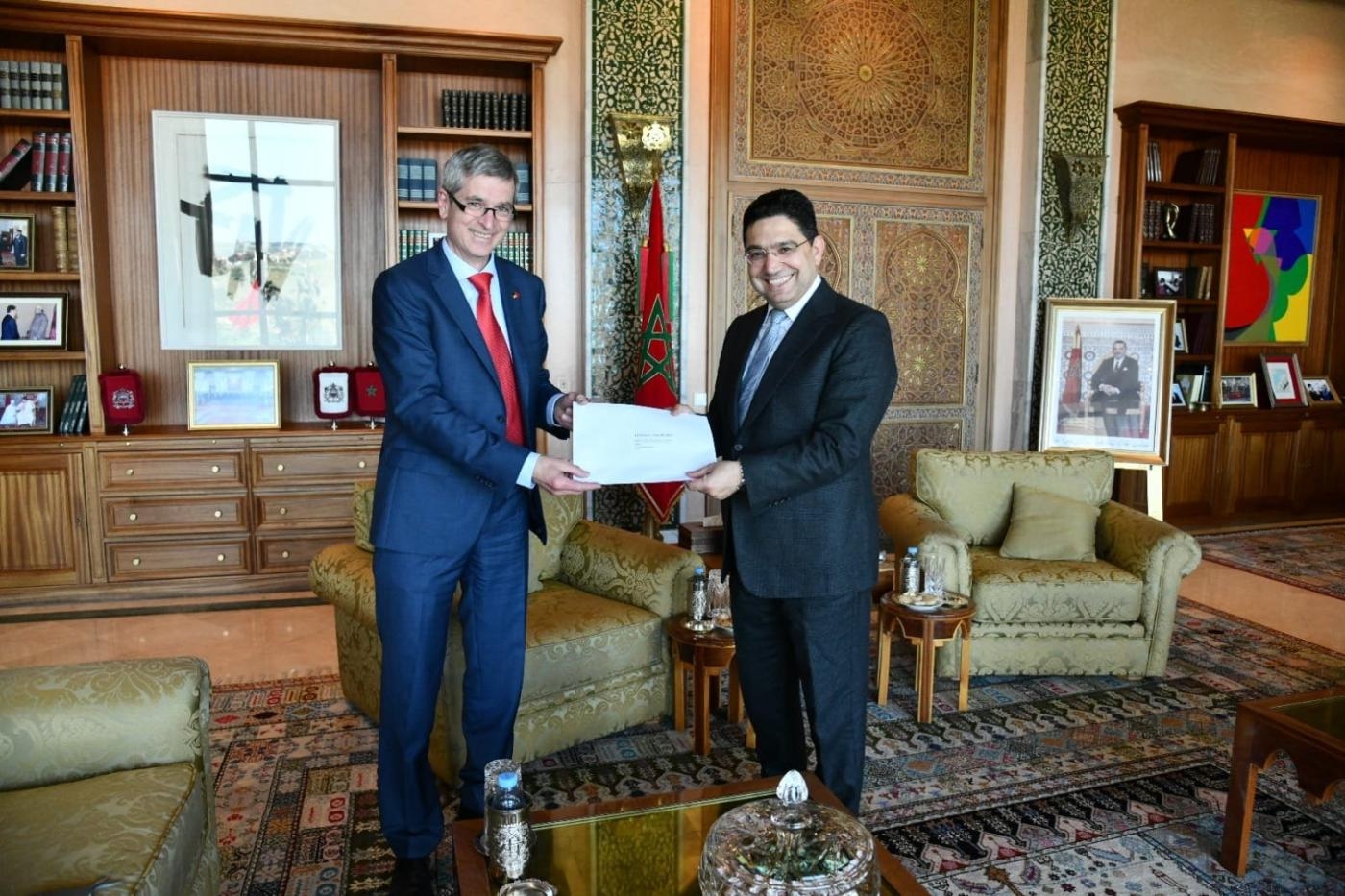
The official assumption of office by the new German ambassador to Rabat, Robert Dolger, at the end of April marked the formalisation of reconciliation between Morocco and Germany, definitively sealing the diplomatic crisis triggered a year earlier.
Rabat in March 2021 decided to suspend diplomatic contacts with the German embassy in Morocco in the wake of “profound misunderstandings” with Berlin on various issues, including the fate of the contested Western Sahara, as Berlin disapproved of former US President Donald Trump’s decision to recognise Moroccan sovereignty over the disputed territory in December.
Previously the director of the sub-Saharan Africa and Sahel region at the Ministry of Foreign Affairs, Dolger takes over from Goetz Schmidt-Bremme, who was thrown under the bus by his hierarchy immediately after the rift between the two countries broke out.
To defuse the crisis, the new government led by Olaf Scholz and its foreign minister, Annalena Baerbock, had to modify Germany's posture vis-a-vis Western Sahara, now stating that the autonomy plan proposed by Morocco remains “a just, viable and realistic solution to this conflict”.
The German Federal President Franz-Walter Steinmeier even invited the King of Morocco Mohammed VI to pay a state visit to Berlin at the end of December.
Then, the Moroccan Minister of Foreign Affairs Nasser Bourita and his German counterpart expressed, during their meeting by videoconference, their desire "to reconnect with the particular quality of bilateral relations in all areas, in the spirit of proven policies, consistency and mutual respect."
Baerbock and Bourita noted the need to "define guidelines together to relaunch and deepen dialogue and cooperation with a view to resolving regional and global challenges in the future" and agreed that "cooperation covering all domains and involving all actors be taken up".
'Cultivating and expanding collaboration'
An independent German source based in Rabat, who advised the German foreign ministry on reconciliation efforts between the two countries, told Middle East Eye that "if a change of government still harbours the potential for a new beginning, the resolution of the crisis was already desired before Scholz took office at the level of the Ministry of Economic Cooperation and Development and the foreign ministry.”
In Rabat and Berlin, the various players in international cooperation between the two countries do not hide their satisfaction at seeing relations between Morocco and Germany warming up after more than nine months of total trade freeze.
'It is now important that Morocco finds the right interlocutors in Germany to strengthen the trust established in the long term'
- German diplomatic source
In an article published by the Friedrich Naumann Foundation for Freedom, a German non-governmental organisation close to the Liberal Democratic Party (FDP), the authors David Henneberger and Sebastian Vagt argue that "Spain and Germany would be well inspired to cultivate and expand their collaboration with Morocco in order to exploit the potential for both shores of the Mediterranean".
Henneberger and Vagt emphasised that “at the same time, [Spain and Germany] must not become too dependent on certain countries in particular, particularly with regard to migration and energy policies”.
The German source pointed out that "the resolution of the crisis was first of all an opportunity to get to know each other better, to address and clarify misunderstandings, and to become aware of certain points on which there was little mutual acquaintances."
The source believes that “it is now important for Morocco to find the right interlocutors in Germany to strengthen the established trust in the long term. Here we think first of all of the deputies of the Bundestag [German parliament]."
Record year for bilateral trade
Even if it cut off all exchanges between German and Moroccan officials, the political crisis has not yet had a noticeable impact on trade between the two countries.
Asked by TelQuel at the end of March about the issue, the director general of the German Chamber of Commerce and Industry in Morocco, Andreas Wenzel, said: "The political crisis has had no impact on German-Moroccan trade and on investments by German companies in Morocco. On the contrary, 2021 was a record year for bilateral trade."
On the other hand, the crisis affected "long-term partnerships in the field of infrastructure, such as cooperation on green hydrogen," he added.
In June 2020, Rabat and Berlin reached an agreement on the construction of a green hydrogen hybrid power plant – a project dubbed Power-To-X – housing a seawater desalination plant and a 100-megawatt electrolyser.
The project, whose cost was estimated at 325 million euros ($347m), was threatened with collapse due to diplomatic upheavals.
"Before the crisis, Morocco was the most active partner among the many German energy partnerships around the world," the German source in Rabat said.
"The crisis has been very detrimental to energy cooperation with Morocco. We are now trying to make up for lost time”, he added, insisting that “Morocco remains one of the most promising countries in terms of energy cooperation”.
“It remains to be seen how technical cooperation can be organised in the future; negotiations on this subject have already begun, the first meetings with delegations from Germany have already been able to take place in Rabat, and the minister of energy, [Leila] Benali, has also been able to go once to Berlin," the source added.
The writers of the Friedrich Naumann Foundation article foresee in any case that the Russian-Ukrainian conflict "should intensify" Morocco-Germany relations.
“In addition to cooperation on migration policy, the energy partnership with Rabat is of particular interest for Berlin. With the help of Morocco, Germany could kill two birds with one stone. It could reduce its dependence on Russian gas and, at the same time, use green hydrogen from the Moroccan desert to make progress in the fight against global warming," they wrote.
*This article was first published in French.
Middle East Eye delivers independent and unrivalled coverage and analysis of the Middle East, North Africa and beyond. To learn more about republishing this content and the associated fees, please fill out this form. More about MEE can be found here.


